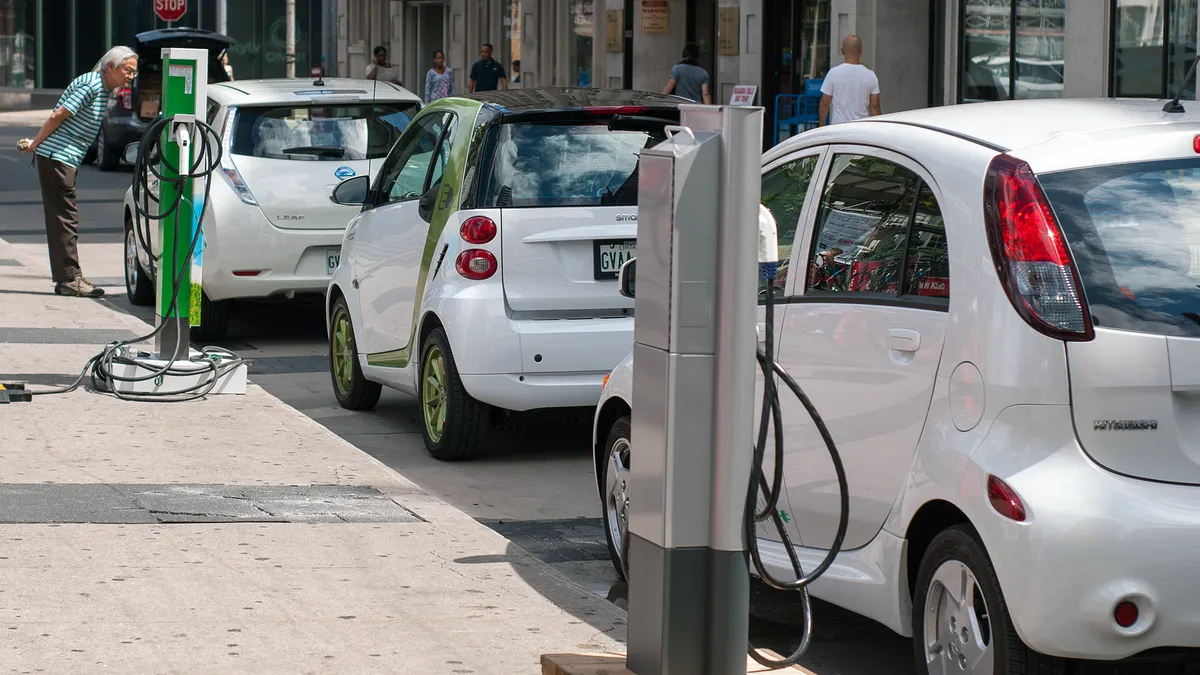Dive Brief:
- Duke Energy has announced an electric vehicle (EV) charging program, including the rollout of 530 charging stations in Florida, focusing on public areas.
- The Park and Plug program asks potential host sites to apply and agree to host equipment through 2022, though Duke will own the equipment. Duke tapped charging station provider NovaCHARGE to supply equipment for the program, install the stations and integrate services for the Park and Plug pilot.
- Separately, Duke said it recently launched a study called Charge Florida, aimed at promoting EV adoption and studying the vehicles' integration onto the electric grid. The three-year study will use technology by FleetCarma to follow 200 drivers and track their charging habits in the first year.
Dive Insight:
Duke Energy Florida's EV plan follows a pattern now familiar among investor-owned utilities beginning to develop charging infrastructure: focus on public locations like workplaces and multi-unit dwellings, put special effort into typically-underserved communities and study how to best integrate the new demand as a grid resource.
Duke says "10 percent of the charging stations will be installed in income-qualified communities to make the benefits of cleaner electric transportation available to all customers."
Duke's study with FleetCarma has volunteers install a device to monitor vehicle charging and battery use. FleetCarma then provides them with an online portal to access an array of data to help empower their decisions. The device will capture data such as: charging history, energy consumption, battery state-of-charge and total greenhouse gas emissions saved.
After data has been gathered in the first year, Duke says the program will shift to a second phase to "encourage participants to modify their charging behaviors to reduce the impacts of EV charging on the grid.
The company had agreed to install 500 EV charging stations as part of a revised settlement last year with the Florida Public Service Commission. Duke is also investing $6 billion to build a more modern and resilient energy grid, including installing new smart meters and building or acquiring 700 MW of new solar power and 50 MW of battery storage in the next four years.













